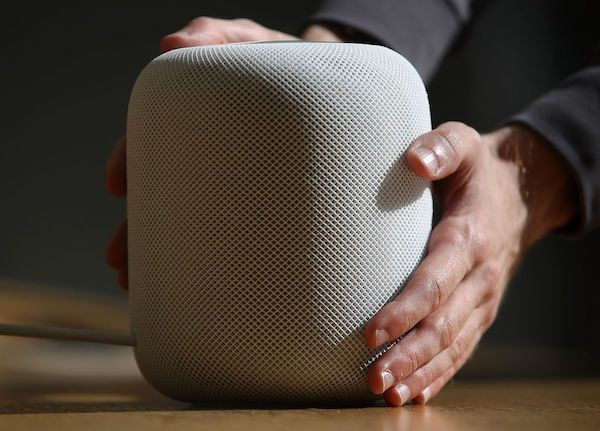Apple Is Reportedly Overhauling Its Smart-Home Strategy

When you think of smart-home technology, the first company's name to come to mind is unlikely to be Apple (NASDAQ:AAPL). Rather, Amazon.com (NASDAQ:AMZN) or Alphabet (NASDAQ:GOOG) (NASDAQ:GOOGL) subsidiary Google are probably the companies you think of, as they have leveraged booming smart speaker sales as the gateway into the smart home. Those two tech giants now control the smart-home market, and Apple faces an uphill battle in trying to catch up following the HomePod's flop.
But don't count the Mac maker out quite yet.
Try, try again
Bloomberg reported yesterday that Apple is aggressively expanding its smart-home team in an effort to build out its HomeKit platform, and the company is trying to get more third-party smart-home gadget makers on board. HomeKit adoption among third-party manufacturers has historically been lackluster compared to Amazon and Google, but Apple enjoyed an uptick in third-party support in 2017 when it loosened some of the platform's hardware requirements and shifted to software-based authentication.
Still, Apple is lagging in third-party support by a considerable margin. The tech titan sells approximately 450 HomeKit-compatible devices, while Amazon's Alexa can control around 85,000 devices and Google plays nicely with over 10,000 products, Bloomberg notes.
Apple is even thinking of building more smart-home devices itself other than the HomePod, according to the report. Rumors of a "HomePod Mini" in the pipeline have been floating around for over a year, but simply adding a more affordable smart speaker to Apple's smart-home portfolio may not be enough. Amazon and Google have been releasing new smart-home products at a dizzying pace, including security systems, smart displays, and smart doorbells, among other categories. Amazon even has an Alexa-powered Smart Oven now.
Apple reportedly looked into making smart-home accessories like a module that could open and close things but that project has since been paused.
This time, Apple should care about being late
Apple likes to say that it doesn't care if it's the first to enter a new market as long as it's the best once it gets there. However, that strategic stance is problematic when it comes to the smart-home market, as consumers have already invested heavily in other platforms, putting Amazon Echo devices and Google Nest gadgets all over their homes.
Even if third-party smart-home devices are supported across all platforms, the switching costs are still high and only escalate further over time. Very few people would be willing to buy a bunch of HomePods at $300 per unit to replace Amazon or Google speakers that start at around $50.
On top of all of these obstacles, Apple's Siri capabilities are not nearly as sophisticated as Alexa or Google Assistant.
This article originally appeared in the Motley Fool.
Evan Niu, CFA owns shares of Amazon and Apple. The Motley Fool owns shares of and recommends Alphabet (A shares), Alphabet (C shares), Amazon, and Apple. The Motley Fool has the following options: short January 2020 $155 calls on Apple and long January 2020 $150 calls on Apple and recommends the following options: long January 2020 $150 calls on Apple and short January 2020 $155 calls on Apple. The Motley Fool has a disclosure policy.





















